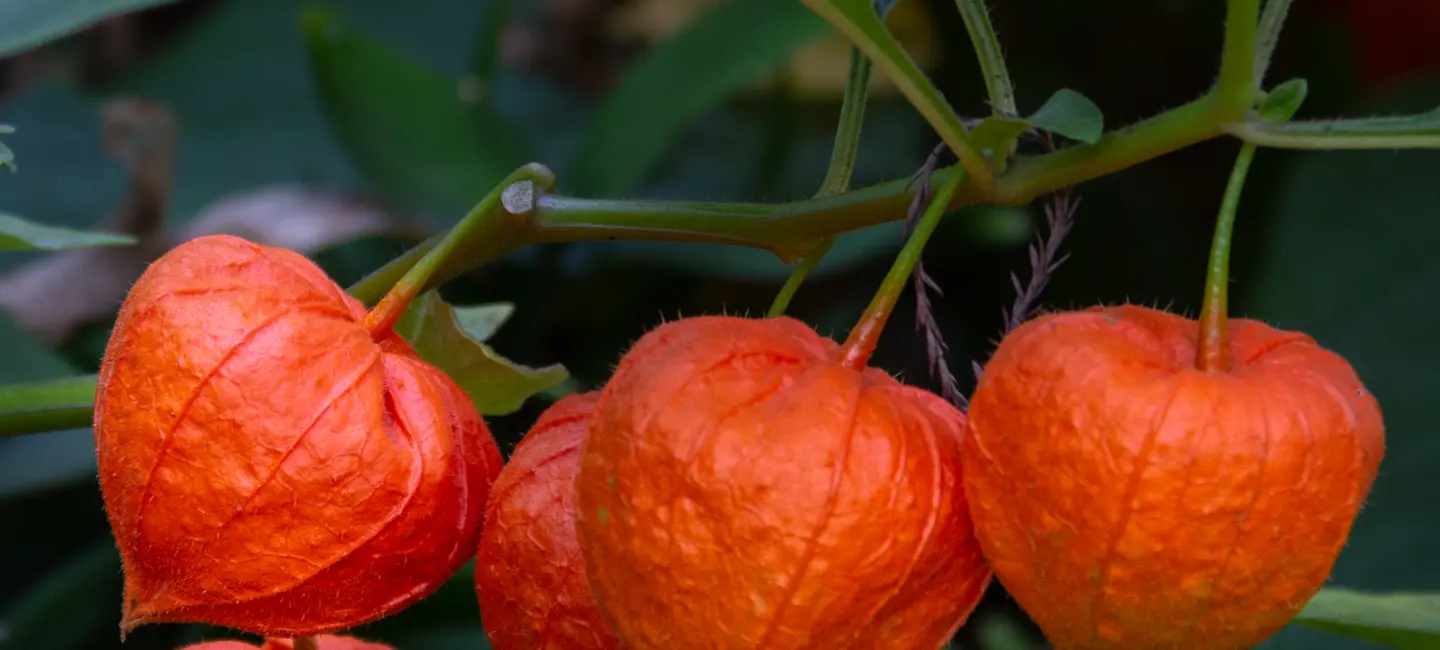
Winter cherry is a plant. It grows in central and southern Europe, Iran, China, and Southeast Asia. The fruit and leaves are used to make medicine.
People use winter cherry for arthritis, enlarged prostate (benign prostatic hyperplasia or BPH), fever, swelling, and other conditions, but there is no good scientific evidence to support these uses.
Is It Effective?
NatMed Pro rates effectiveness based on scientific evidence according to the following scale: Effective, Likely Effective, Possibly Effective, Possibly Ineffective, Likely Ineffective, Ineffective, and Insufficient Evidence to Rate.
- Enlarged prostate (benign prostatic hyperplasia or BPH).
- Arthritis.
- Gout.
- Increasing urine flow (as a diuretic) in kidney and bladder conditions.
- Fever.
- Constipation.
- Swelling.
- Preventing pregnancy.
- Causing an abortion.
- Other conditions.
More evidence is needed to rate the effectiveness of winter cherry for these uses.
Is it Safe?
There isn't enough information available to know how winter cherry might work.
When taken by mouth: There isn't enough reliable information to know if winter cherry is safe or what the side effects might be.
Special Precautions & Warnings:
Pregnancy and breast-feeding: Winter cherry is POSSIBLY UNSAFE when taken during pregnancy. Winter cherry might prevent a fertilized egg from attaching to the womb. Don't use winter cherry if you are pregnant or trying to become pregnant. There isn't enough reliable information to know if winter cherry is safe to use when breast-feeding. Stay on the safe side and avoid use.
Diabetes: Winter cherry might reduce blood sugar levels. Taking winter cherry might increase the risk of blood sugar levels becoming too low, especially if you are taking insulin or other diabetes medications.
Surgery: Winter cherry might reduce blood sugar levels. There is a concern that it might increase the chance of blood sugar falling too low during and after surgery. Stop using winter cherry at least 2 weeks before a scheduled surgery.
Medications changed by the liver (Cytochrome P450 2E1 (CYP2E1) substrates)
Interaction Rating=Moderate Be cautious with this combination.
Some medications are changed and broken down by the liver. Winter cherry might decrease how quickly the liver breaks down some medications. Taking winter cherry along with some medications that are changed by the liver can increase the effects and side effects of your medication. Before taking winter cherry, talk to your healthcare provider if you take any medications that are changed by the liver.
Some medications that are changed by the liver include acetaminophen, chlorzoxazone (Parafon Forte), ethanol, theophylline, and drugs used for anesthesia during surgery such as enflurane (Ethrane), halothane (Fluothane), isoflurane (Forane), and methoxyflurane (Penthrane).
Medications for diabetes (Antidiabetes drugs)
Interaction Rating=Moderate Be cautious with this combination.
Winter cherry might decrease blood sugar. Diabetes medications are also used to lower blood sugar. Taking winter cherry along with diabetes medications might cause your blood sugar to go too low. Monitor your blood sugar closely. The dose of your diabetes medication might need to be changed.
Some medications used for diabetes include glimepiride (Amaryl), glyburide (Diabeta, Glynase PresTab, Micronase), insulin, pioglitazone (Actos), rosiglitazone (Avandia), and others.
Herbs and supplements that might lower blood sugar: Winter cherry might lower blood sugar. Using winter cherry along with other herbs and supplements that might lower blood sugar might cause blood sugar to go too low. Herbs that might lower blood sugar include alpha-lipoic acid, bitter melon, chromium, devil's claw, fenugreek, garlic, guar gum, horse chestnut, Panax ginseng, psyllium, Siberian ginseng, and others.
There are no known interactions with foods.
The appropriate dose of winter cherry depends on several factors such as the user's age, health, and several other conditions. At this time there is not enough scientific information to determine an appropriate range of doses for winter cherry. Keep in mind that natural products are not always necessarily safe and dosages can be important. Be sure to follow relevant directions on product labels and consult your pharmacist or physician or other healthcare professional before using.
Alkékenge, Alquequenje, Amour en Cage, Bladder Cherry, Cape Gooseberry, Cerise d'Hiver, Cerise de Terre, Chinese Lantern, Coqueret, Coqueret Alkékenge, Corazoncillo, Farolillo Chino, Groseille du Cap, Ground Cherry, Herbe à Cloques, Herbe aux Cloques, Herbe à la Pierre, Japanese Lantern, Jin Deng Long, Lanterne Chinoise, Lanterne Japonaise, Physalis, Physalis alkekengi, Strawberry Ground Cherry, Strawberry Tomato.
Information on this website is for informational use only and is not intended to replace professional medical advice, diagnosis, or treatment. While evidence-based, it is not guaranteed to be error-free and is not intended to meet any particular user’s needs or requirements or to cover all possible uses, safety concerns, interactions, outcomes, or adverse effects. Always check with your doctor or other medical professional before making healthcare decisions (including taking any medication) and do not delay or disregard seeking medical advice or treatment based on any information displayed on this website.
© TRC Healthcare 2024. All rights reserved. Use and/or distribution is permitted only pursuant to a valid license or other permission from TRC Healthcare.
